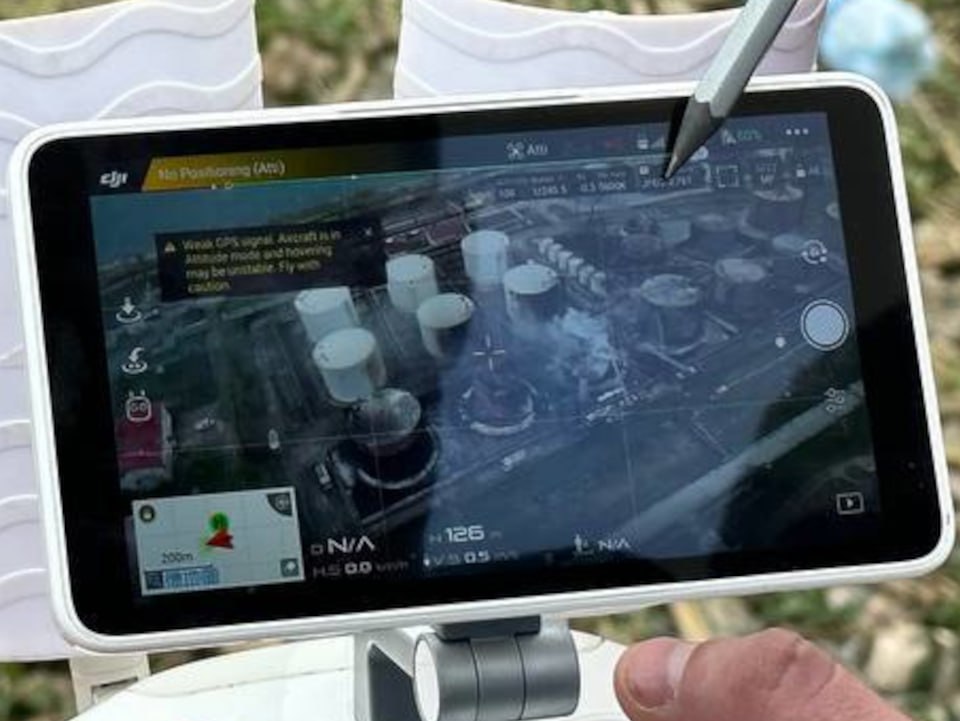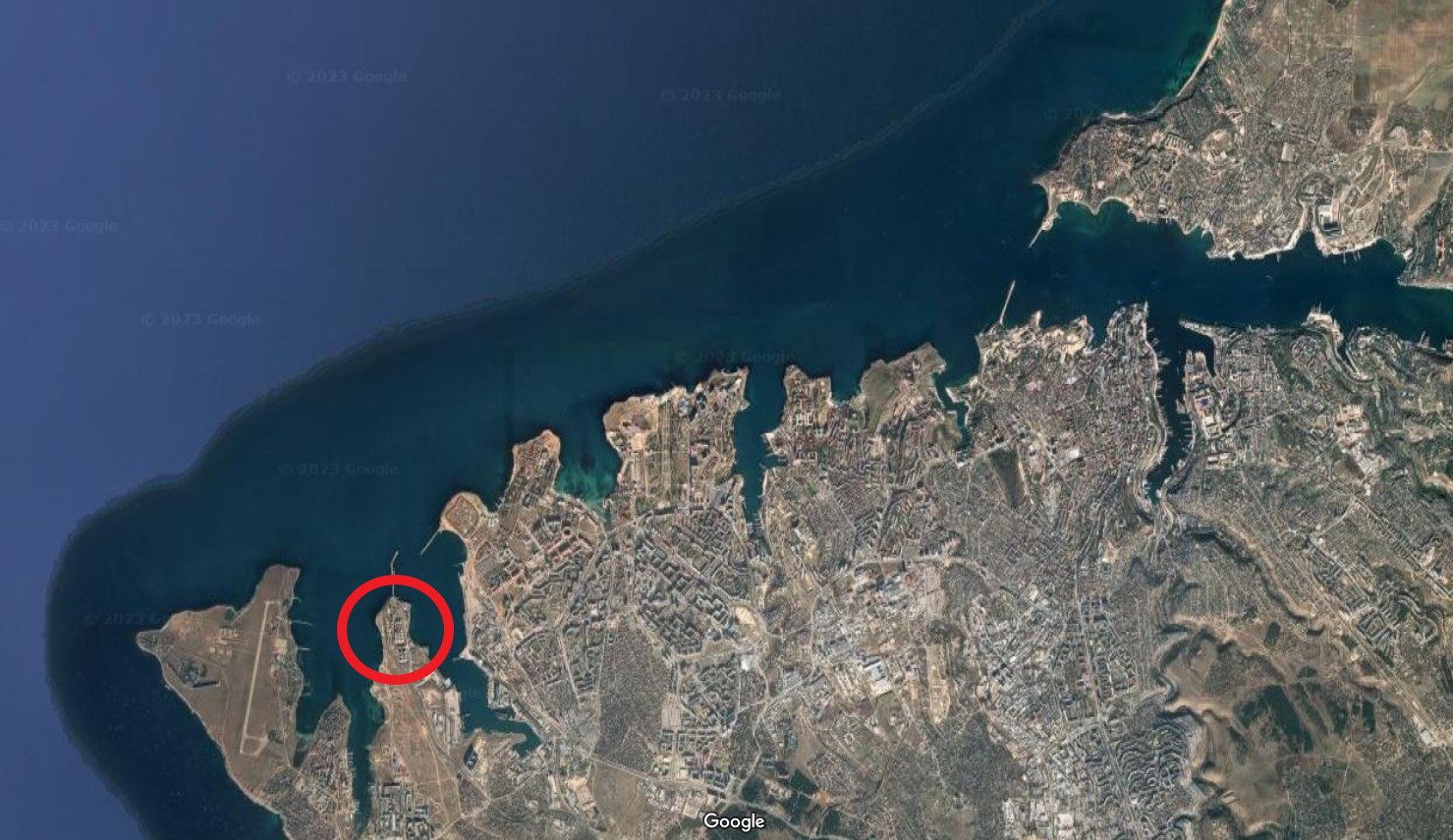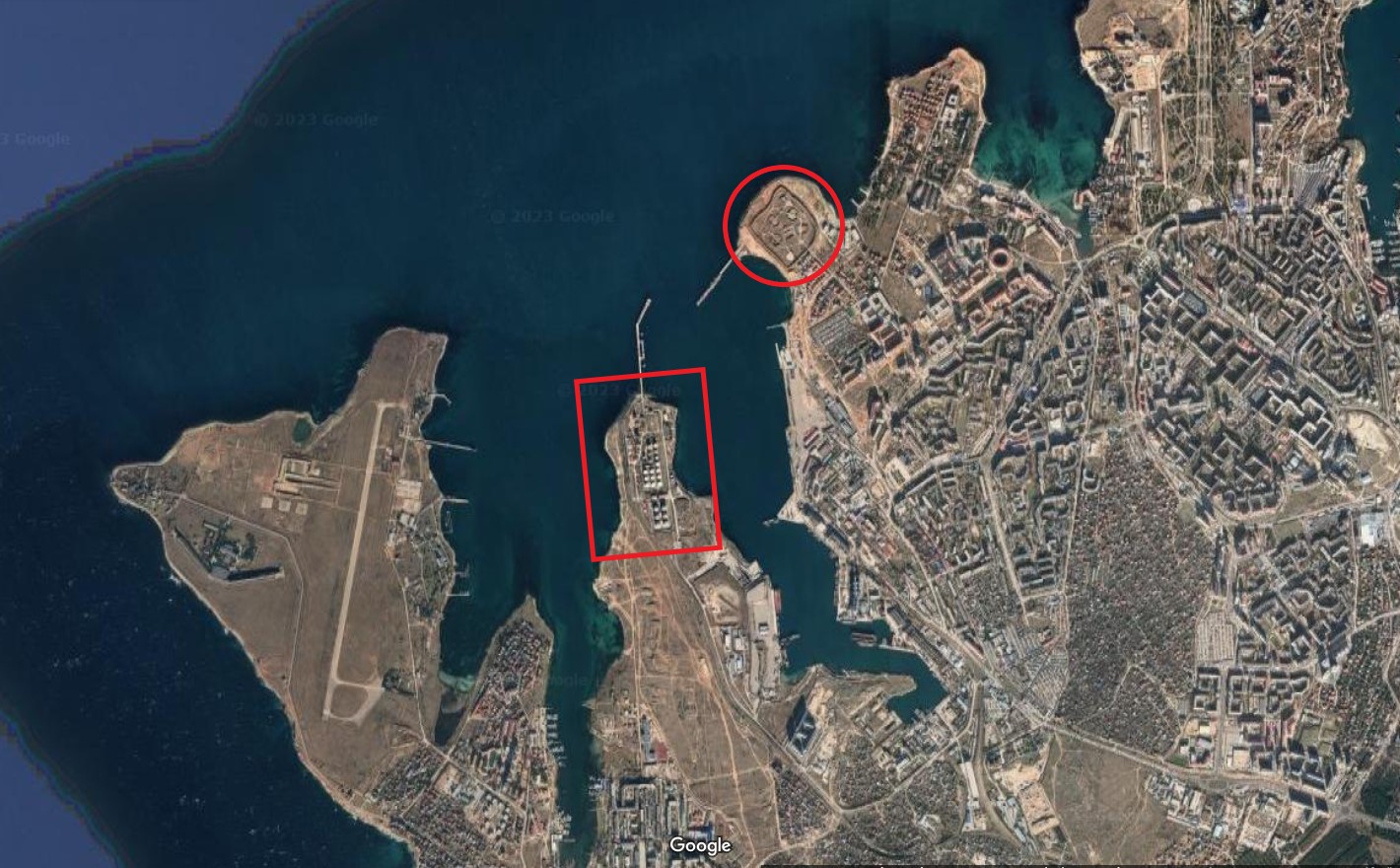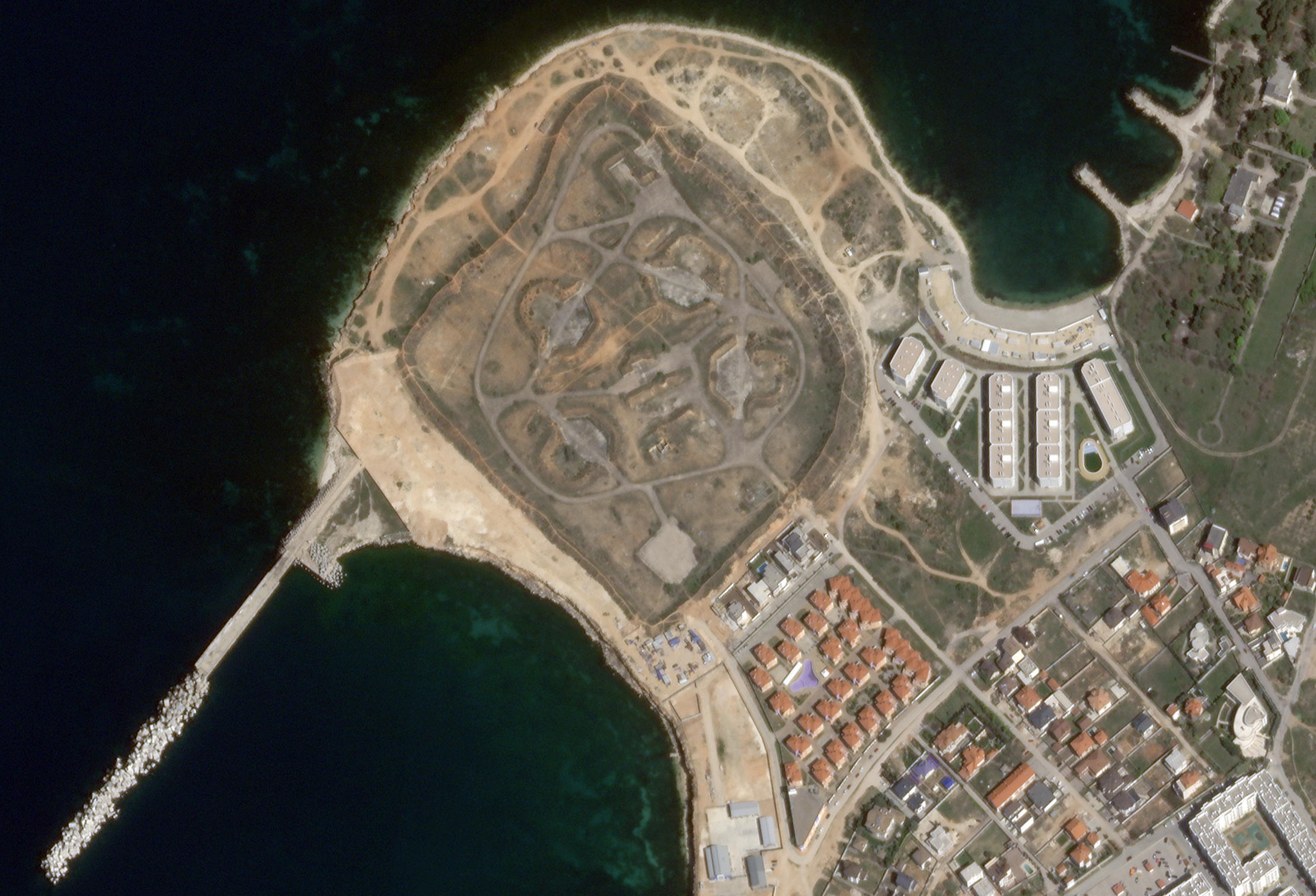A brilliant explosion turned night to day in the strategic Russian-occupied Crimean port city of Sevastopol, then blacked out the sky as a Russian fuel depot burned throughout the day after a Ukrainian drone attack.
The reported kamikaze drone attack set several fuel storage tanks ablaze at a large fuel terminal on Sevastopol’s west end. The complex on Kozacha Bay made a towering plume of black smoke before burning out, leaving charred tanks and pipelines in its wake.
The strike is the latest in a series of Ukrainian operations against Sevastopol using unmanned air and sea vehicles dating to last summer’s attack on the Black Sea Fleet Headquarters. Ukrainian kamikaze boats attacked the fleet itself in October, with numerous other attempted and successful attacks before and after. The blaze triggered a sizable response of numerous fire brigades and even a firefighting train.
The site may not be the primary fuel depot for the Russian Black Sea Fleet, as noted below in a thread from The Lookout (@The_Lookout_N ). A separate hardened tank farm with piers closer to the fleet’s main berthing areas in Sevastopol harbor possibly serves that role, or at least part of that role.
Video from a drone used to survey damage at the facility shows the total destruction of multiple fuel tanks and what looks like serious thermal damage to some of the tanks that didn’t burn themselves. The damage looks significant, likely compromising facility operations for the foreseeable future.

However, satellite imagery shows the facility is close to other Russian BSF infrastructure. Telltale revetments show an air defense and/or anti-ship missile site to the northeast immediately across Komyshova Bay from the tank farm. In satellite imagery from April 25 that The War Zone reviewed (posted below), the site’s revetments appeared empty, aside from one possible vehicle. If this vehicle is air defense related, it would be a short-range point defense system.



A sizable maneuver and vehicle training area sits to the south, and the military bases along the adjacent Kozacha Bay reportedly garrison the BSF’s 810th Guards Naval Infantry Brigade. The brigade took part in the siege of Mariupol and its Azovstal Complex, and has reportedly suffered heavy casualties since the war began.
Regardless of its potential impact on operations, no Russian supply officer wants to see that much fuel and infrastructure go up in smoke. The issue isn’t so much the lost fuel itself, but the lost capability to retain large amounts of fuel in the future. Ukraine bought a massive fleet of fuel trucks to account for this issue knowing its established fuel farms would be destroyed. So they distributed their fuel into thousands of mobile fuel trucks.
As concerns over the looming Ukrainian counteroffensive grow, any damage to critical supply stockpiles like fuel and ammunition could pose real threats to Russian defensive plans. The fuel depot attack would fit the tried and true Ukrainian strategy of preparing the battlespace ahead of such an offensive.
Russian worries for Crimea could be just the beginning, according to a post from the Crimean Wind (@Crimeanwind) Telegram channel. The post claims Russia is trying to organize a larger ferry system to support evacuation operations from Crimea to Russia alongside the Kerch Strait Bridge. Russia used ferries during the bottleneck last fall after several spans of the bridge fell in a Ukrainian attack, but the post suggests the ferries would supplement any traffic on the bridge if Moscow orders an evacuation.
Before we head into the latest updates from Ukraine, The War Zone readers can catch up on our previous rolling coverage here.
The Latest
The British Ministry of Defense believes Friday’s wave of Russian cruise missile attacks on Ukraine was a stark departure from this winter’s onslaught. In its latest intelligence update, the MoD noted the strikes involved fewer missiles, and it’s unlikely the Russians targeted Ukrainian energy infrastructure as they did this winter.
The more plausible assessment, however, is that the Russians tried to hit Ukrainian reserve units and supply shipments; it’s not clear whether these strikes accomplished their objective. The update noted Russia’s inefficient targeting process that does not account for collateral damage as evident in Friday’s strikes with more than 25 civilians killed.
Reuters has a remarkable piece on Russia’s string of fortifications along both its border with Ukraine and the frontline in its occupied areas. The report shows satellite imagery and incredibly detailed illustrations of Russian fortifications and the challenges they pose to attacking Ukrainian forces.
Ukrainian drone operators continue to terrorize Russian vehicles and fighting positions from above, with the latest montage of strikes from the Ukrainian SBU Alpha unit. The clips reportedly show the destruction of four tanks, a company’s worth of vehicles, and three strong points.
Russian drones remain a threat, as evidenced by an improvised anti-drone net set up over this Ukrainian M777 howitzer’s position.
In its latest assessment of controlled terrain, the Institute for the Study of War (@TheStudyofWar ) noted another week of limited Russian gains amid Bakhmut’s ruins. The battle in the city itself remains a brutal street-by-street contest, with the vital highway carrying Ukrainian supply lines west to Chasiv Yar threatened further.
Wagner Group PMC mercenaries have fought much of the battle in and around Bakhmut, with founder Yevgeny Prigozhin repeatedly criticizing the Russian Ministry of Defense for supply bottlenecks and shortages for his troops.
In a recent interview, Prigozhin warned that Wagner “will cease to exist” if the ammunition problems are not solved.
It’s unclear precisely what warning Prigozhin is trying to send here, but it bears mentioning that Wagner remains at the forefront of Russian-backed operations overseas in addition to Ukraine. Prigozhin could be warning Moscow that the supply situation jeopardizes not only its campaign in Bakhmut, but Wagner’s ability (or willingness) to conduct operations on Russia’s behalf elsewhere.
Video from a drone with the Ukrainian 92nd Mechanized Brigade reportedly shows Wagner casualties in bodybags outside Bakhmut, further grim evidence of the battle’s toll.
The Ukrainian Ministry of Defense showed just how busy its air defense units have been. While kill marks are a common sight on planes’ nose art, it appears one Ukrainian air defense command post has a sizable kill score of its own.
If the proof is in the paint, this command post has claimed kills of 22 cruise missiles, nine kamikaze drones, nine helicopters, seven Russian Air Force aircraft, and six drones.
Lastly, a Ukrainian soldier’s video shows that despite the chaos and carnage on the frontline, the wildlife remains. A marbled polecat decided to claim a Ukrainian foxhole for itself and defended it as such. The weasel-like creature hissed and tried to charge at the soldier until they dropped a vest pack into the hole to help it climb out. This little guy paired with the famous trench beaver should really start their own fighting unit.
That’s all for now. We’ll update this story when there’s more news about Ukraine to report.
Contact the author: stetson.payne@thewarzone.com
